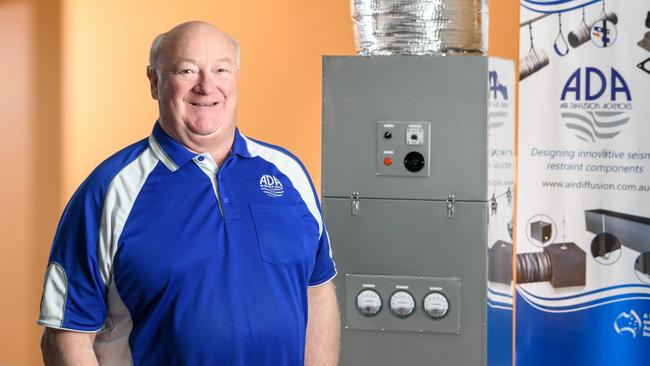BankSA State Monitor shows huge gap between business and consumer sentiment
A BankSA survey has revealed the huge gap between consumer and business sentiment heading into the busy festive season.

Business
Don't miss out on the headlines from Business. Followed categories will be added to My News.
Cost of living pressures are continuing to weigh on consumers and their spending habits heading into the busy festive season, according to a BankSA survey, but a rosier outlook for big businesses has them ready to ramp up investment in major purchases.
BankSA’s quarterly State Monitor, released on Tuesday, shows consumer confidence has plunged to its lowest level since the early stages of Covid-19, leading to a decline in spending and spending intentions in the lead up to Christmas.
There was a 19 per cent decline in the number of respondents who had made a major purchase – such as real estate, cars, white-goods, electronics and travel – in the previous three months, and an 11 per cent fall in those who were planning a major purchase over the coming three months.
But there’s a rosier outlook for big business, with a 12 per cent increase in the number of businesses planning major investment – in items such as office equipment, cars and commercial real estate – over the coming year, and an 8 per cent increase in respondents planning to recruit new staff over the coming quarter.
Overall, BankSA’s business confidence index increased by 3.4 points since the previous survey in February, to 120.2 points, where 100 is considered a neutral level.
But with the consumer confidence index falling by 7.5 points to 102.6 points – its lowest level since February 2020 – the disparity between the two measures of consumer and business sentiment has reached its widest level in the 27-year history of the survey.
BankSA business state general manager David Firth said that while the outlook for big business was strongest, consumers were feeling the pinch of cost of living pressures, including high energy costs and interest rates.
“There are positive signs that businesses are clearly looking forward rather than backward, indicating their willingness to make major purchases and hire more employees in the near future, and they’re more optimistic about their own business situation,” he said.
“Consumers are less optimistic and are tightening their belts, as shown by their reticence to having made or looking to make a major purchase, and they’re less confident that there will be a significant positive change in their financial position in the next 12 months.
“While external factors such as world affairs, cost of energy and wages relative to the cost of living continue to concern both consumers and businesses, the survey shows South Australians are optimistic about South Australia’s long-term outlook, future opportunities and the performance of the sharemarket.”
According to the survey, larger businesses remain the most confident about their future prospects while smaller businesses employing less than five people are less confident and the index for that segment remains below the 100-point benchmark.
The transport sector recorded the largest decrease in confidence in the latest survey, falling by 17.2 points, but remains the most positive industry sector alongside finance and community services.
Business confidence in the metropolitan area surged by 10.7 points to 130.6, but there was a 14 point decline in the rural index, which fell to 95.7.
Bill Threadgold, from family-owned air-conditioning component manufacturer Air Diffusion Australia, said having a diversified business was the key to succeeding during a challenging economic environment.
“We’ve got a great product range and we’re actively expanding in locations where we don’t have a large market share,” he said.
“We’ve also got a diversified business, selling to commercial, wholesale and residential customers.
“The reality is that the residential market isn’t as strong as it could be right now, and it always fluctuates due to weather and consumer confidence, but the other parts of our business are making up for that.”
The company, which started in 1989, has more than 250 staff in 11 locations across South
Australia, Victoria, Queensland and the Northern Territory.
Mr Threadgold said business boomed during the pandemic when the company developed a “fan and filter box” to protect patients and front-line healthcare workers from harmful bacteria and viruses found in the air. The company later employed its first chief executive as part of a new management structure designed to drive further expansion.




